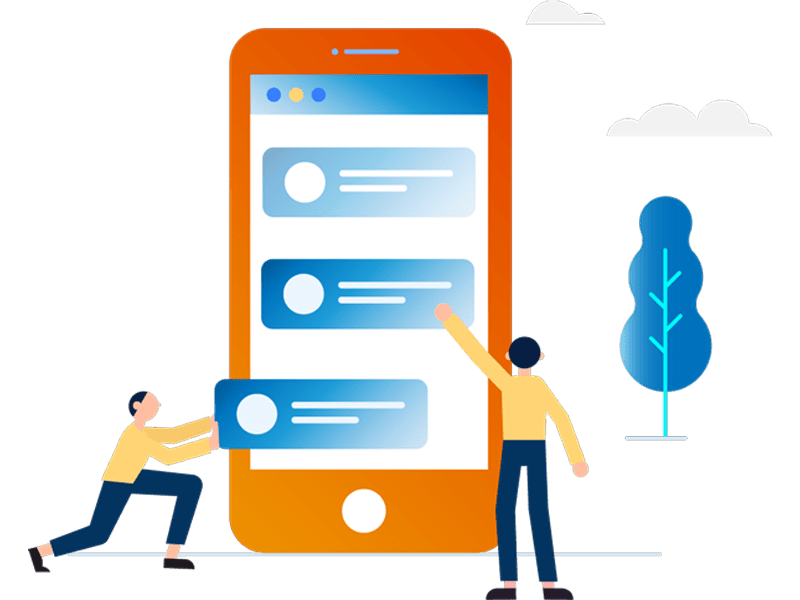App Development

App Development
Building your desktop, mobile, gaming, or media app is one thing but making sure it runs the fastest means that you will overtake the competition and be the front runner in your industry.
What application languages do you support?
-
Python
Python is widely regarded as a programming language that’s easy to learn, due to its simple syntax, a large library of standards and toolkits, and integration with other popular programming languages such as C and C++. In fact, it’s the first language that students learn in the Align program, Gorton says. “You can cover a lot of computer science concepts quickly, and it’s relatively easy to build on.” It is a popular programming language, especially among startups, and therefore Python skills are in high demand.
-
JavaScript
JavaScript is the most popular programming language for building interactive websites; “virtually everyone is using it,” Gorton says. When combined with Node.js, programmers can use JavaScript to produce web content on the server before a page is sent to the browser, which can be used to build games and communication applications that run directly in the browser. A wide variety of add-ons extend the functionality of JavaScript as well.
-
Java
Java is the programming language most commonly associated with the development of client-server applications, which are used by large businesses around the world. Java is designed to be a loosely coupled programming language, meaning that an application written in Java can run on any platform that supports Java. As a result, Java is described as the “write once, run anywhere” programming language.
-
C#
Microsoft developed C# as a faster and more secure variant of C. It is fully integrated with Microsoft’s .NET software framework, which supports the development of applications for Windows, browser plug-ins, and mobile devices. C# offers shared codebases, a large code library, and a variety of data types.
-
C
Along with Python and Java, C forms a “good foundation” for learning how to program, Gorton says. As one of the first programming languages ever developed, C has served as the foundation for writing more modern languages such as Python, Ruby, and PHP. It is also an easy language to debug, test, and maintain.
-
C++
C++ is an extension of C that works well for programming the systems that run applications, as opposed to the applications themselves. C++ also works well for multi-device and multi-platform systems. Over time, programmers have written a large set of libraries and compilers for C++. Being able to use these utilities effectively is just as important to understanding a programming language as writing code.
-
Swift
Swift is Apple’s language for developing applications for Mac computers and Apple’s mobile devices, including the iPhone, iPad, and Apple Watch. Like many modern programming languages, Swift has a highly readable syntax, runs code quickly, and can be used for both client-side and server-side development.
-
Kotlin
Kotlin is a cross-platform, statically typed, general-purpose programming language with type inference. Kotlin is designed to interoperate fully with Java, and the JVM version of Kotlin's standard library depends on the Java Class Library, but type inference allows its syntax to be more concise.
-
Dart
Dart is a programming language designed for client development, such as for the web and mobile apps. It is developed by Google and can also be used to build server and desktop applications. Dart is an object-oriented, class-based, garbage-collected language with C-style syntax.
-
Unity
Unity is a cross-platform game engine with a built-in IDE developed by Unity Technologies. It is used to develop video games for web plugins, desktop platforms, consoles and mobile devices.
-
Xamarin
Xamarin was started to replace Mono for Android and iOS (Mono project aimed to make .Net framework cross platform and bring it to Linux, Android, iOS and others) It allows to build Android, iOS and Windows Mobile Applications using same programming language C# and possibly share most of your code. Xamarin binds libraries from Java and Xcode to make it accessible from C#, yet providing all native controls, native performance and native user experience.
